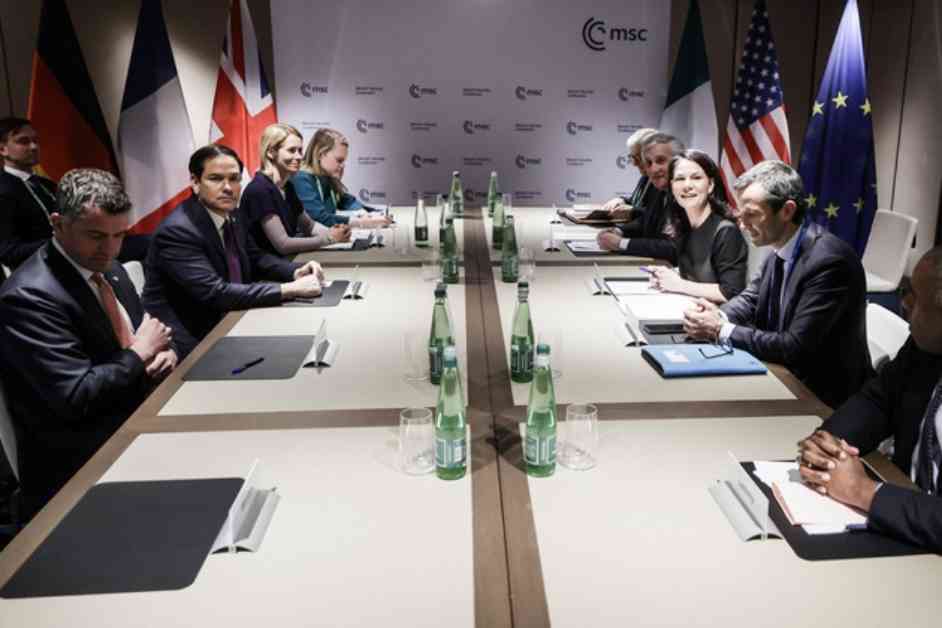The US recently sent out a list of questions to European representatives ahead of the Munich Security Conference, seeking details about their willingness to enhance security support for Ukraine. This diplomatic move signifies the expectations of the new US administration for European allies in resolving the conflict in Ukraine. With a focus on strengthening military capabilities, these six direct sets of questions aim to clarify the role of European partners in establishing a lasting security framework. The US State Department emphasized the importance of European leadership in this endeavor, anticipating proposals from them.
Significance of European Response
Two European diplomats deliberating over a collective response to the US inquiry highlights the gravity of the situation. The recent conversation between US President Donald Trump and Russia’s President Vladimir Putin, without consulting Ukraine, has added a layer of complexity to the peace negotiations. Trump’s announcement stirred global reactions, prompting discussions among EU allies to address the security demands expressed by the US administration. French President Emmanuel Macron’s emergency meeting with EU allies underscores the urgency of the matter, as officials in Kyiv and Brussels await further developments. The upcoming meeting between Russian and American officials in Saudi Arabia is expected to shed light on the ongoing peace negotiations, despite Ukraine’s exclusion.
Key Questions for European Allies
The questions posed by the US to European allies reflect a nuanced approach to resolving the conflict in Ukraine. From security guarantees to the deployment of military forces, these inquiries seek to outline a comprehensive strategy for achieving peace. European and third countries are prompted to consider their participation in potential security arrangements, with a focus on the necessary size and deployment of forces. Contingency plans in case of Russian aggression are also a crucial aspect of the dialogue, emphasizing preparedness among allies. The resource requirements from the US and the provision of additional capabilities to Ukraine demonstrate a collaborative effort to strengthen the negotiating position and increase pressure on Russia.
As an American journalist covering the war in Ukraine since 2022, Katie Livingstone brings a unique perspective to the unfolding events. Her extensive experience in conflict reporting and foreign policy analysis adds depth to the narrative, shedding light on the human impact of geopolitical decisions. Livingstone’s dedication to highlighting the stories of individuals affected by conflict underscores the importance of comprehensive and empathetic journalism in understanding global crises. In a world fraught with uncertainty, her work serves as a beacon of truth and resilience, bridging the gap between distant conflicts and human experiences.
The US administration’s engagement with European allies on the issue of Ukraine’s security reflects a pivotal moment in international diplomacy. As world leaders navigate the complexities of war and peace, the stakes are high for all parties involved. The responses to these critical questions will shape the course of negotiations and influence the future of Ukraine’s security landscape. In a rapidly changing geopolitical environment, the need for collaboration and strategic foresight is more pressing than ever. As the world watches these developments unfold, the role of journalism in providing context and analysis remains indispensable.
Ensure that you expand on details where necessary to provide additional context, expert insights, or deeper narrative layers. Begin with the critical details—who, what, where, when, why, and how—in the opening paragraph. Follow with supporting information, such as witness accounts, expert commentary, or relevant context, in descending order of importance. Use exactly 2-3 subheadings marked with “

















